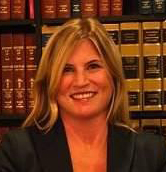Virgin Islands Debt Collection Laws
 |
| Sarah R. Smith |
Submitted by Sarah R. Smith, Law Offices of Karin A. Bentz, P.C.
Published by The National List of Attorneys
Sarah R. Smith is an attorney with the Law Offices of Karin A. Bentz, PC, located in St. Thomas. Sarah earned her BA degree from Colorado College, and her JD from the University of San Francisco School of Law. The firm, founded in 1993, represents insurance companies, businesses, large corporations and individuals doing business in the U.S. Virgin Islands. The firm is a general trial and appellate practice, focusing in commercial litigation, insurance defense, employment and labor law, trademark infringement, corporate and real estate law, Social Security and Veterans’ disability matters, and environmental and personal injury law.
1. Virgin Islands Debt Collection Laws
The Territory of the U.S. Virgin Islands is a U.S. Protectorate, governed by the Organic Act of 1957. The USVI has a Federal District Court, as well as the Superior (formerly Territorial) and Supreme Court. Decisions by the 3-judge panel comprising the Virgin Islands Supreme Court are directly appealable to the United States Supreme Court. The local law is relatively young, and significantly informed by federal law, as well as the Restatements by the American Law Institute.
In the United States Virgin Islands, “the rules of the common law, as expressed in the restatements of the law approved by the American Law Institute, and to the extent not so expressed, as generally understood and applied in the United States, shall be the rules of decision in the courts of the Virgin Islands in cases to which they apply, in the absence of local laws to the contrary.” 1 V.I.C. § 4.*
There are few local statutes addressing the collection of debt. Collection of consumer debts is addressed by 12A V.I.C. § 101, et. seq., which outlines the Territory’s prohibition on unfair trade practices, including deceptive and unconscionable trade practices.
As defined in Section 102: a “‘deceptive trade practice‘ means any false, falsely disparaging, or misleading oral or written statement, visual description or other representation of any kind made in connection with the sale, lease, rental, or loan of consumer goods or services, or in the extension of consumer credit or in the collection of consumer debts, which has the capacity, tendency or effect of deceiving or misleading consumers.”
Likewise, an “’unconscionable trade practice’ means any act or practice . . . in the collection of consumer debts which unfairly takes advantage of the lack of knowledge, ability, experience or capacity of a consumer; or results in a gross disparity between the value received by a consumer and the price paid, to the consumer's detriment; provided, that no act or practice shall be deemed unconscionable under this chapter unless declared unconscionable and described with reasonable particularity in the laws of the United States Virgin Islands, or in a rule or regulation promulgated by the Director of the Consumer Services Administration. § 102 Definitions, 12A V.I.C. § 102
Download the complete white paper Virgin Islands Debt Collection Laws.
